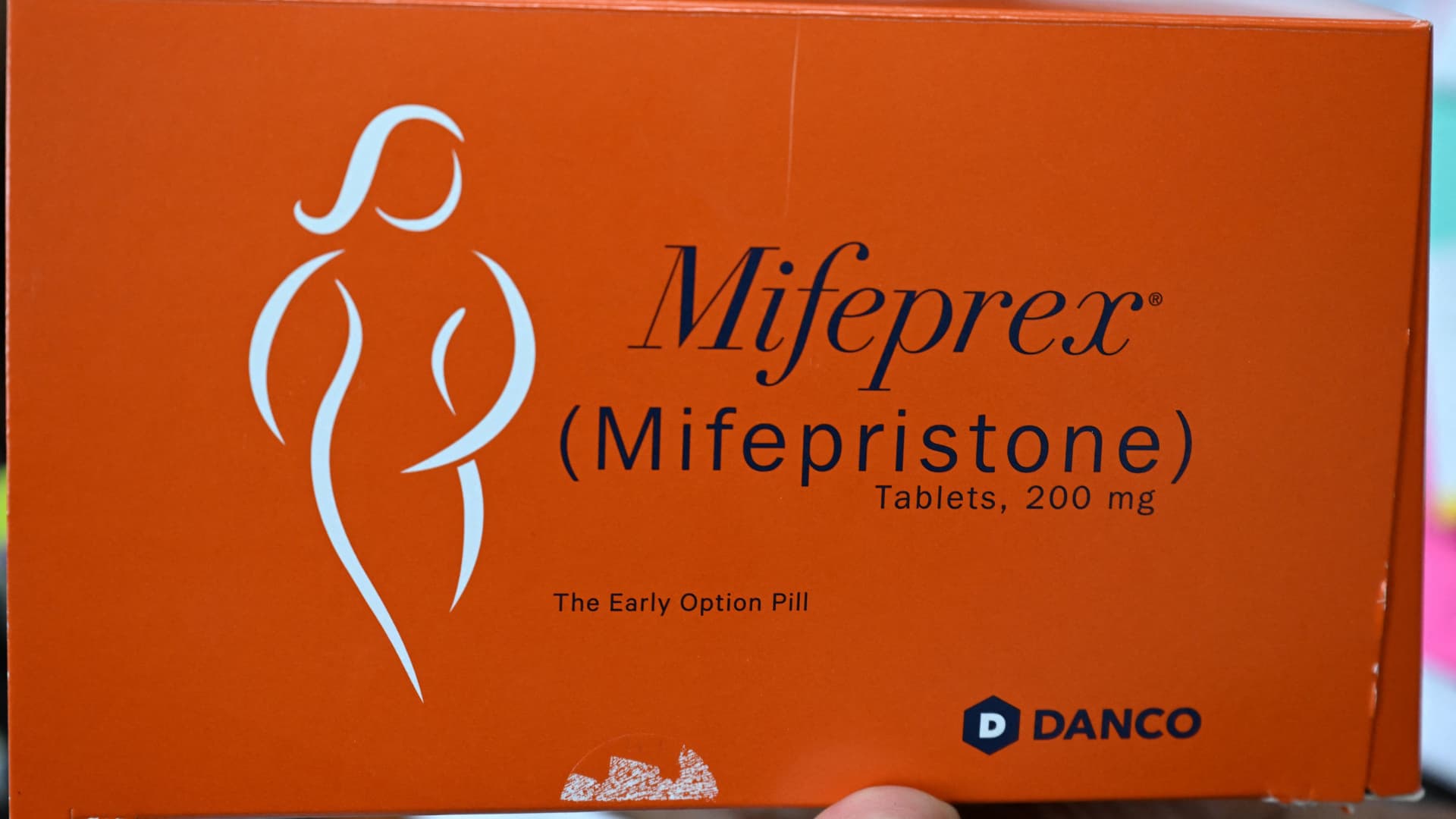
Mifepristone (Mifeprex), one of the two drugs used in a medication abortion, is displayed at the Women’s Reproductive Clinic, which provides legal medication abortion services, in Santa Teresa, New Mexico, on June 15, 2022.
Robyn Beck | AFP | Getty Images
Abortion pill mifepristone will remain fully available in more than a dozen states with none of the restrictions imposed by a U.S. appeals court this week, the state attorney general who spearheaded a lawsuit to protect the medication said Thursday.
Attorney General Bob Ferguson of Washington said U.S. District Judge Thomas Rice’s order that the Food and Drug Administration preserves access to mifepristone in 17 states and the District of Columbia is “crystal clear.” The decision by the U.S. 5th Circuit Court of Appeals on Wednesday night to impose tougher restrictions on the abortion pill does not apply in these states, Ferguson said.
“No judge in Texas or the 5th Circuit gets to override what a federal judge in Washington state has decided,” he told CNBC.
Ferguson’s interpretation underscores the messy legal landscape that has emerged following dueling court decisions on the drug’s legal status. The U.S. Supreme Court appears poised to decide on the future of mifepristone — and potentially soon.
Rice of the U.S. Eastern District of Washington last Friday barred the FDA from “altering the status quo and rights as it relates to the availability of mifepristone” in the states that sued to protect access to the drug.
His order applies to Arizona, Colorado, Connecticut, Delaware, Illinois, Michigan, Nevada, New Mexico, Oregon, Rhode Island, Vermont, Hawaii, Maine, Maryland, Minnesota, Pennsylvania, Washington state and the District of Columbia.
Rice’s order keeps the FDA’s current regulatory framework in place in those states. This includes mail delivery of the abortion pill in those jurisdictions, the ability of retail pharmacies to dispense the medication if they are certified to do so, and the administration of mifepristone up to the 10th week of pregnancy.
“We have a ruling that’s crystal clear, and our full expectation is that the FDA will honor it,” Ferguson said.
Rice’s decision Friday came just 20 minutes after U.S. District Judge Matthew Kacsmaryk of the U.S. Northern District of Texas unilaterally suspended the FDA’s more than two-decade-old approval of mifepristone and all subsequent regulatory actions the agency has taken since then.
The Justice Department appealed Kacsmaryk’s decision to the 5th Circuit Court of Appeals on Monday.
A three-judge panel voted 2-1 on Wednesday to block Kacsmaryk’s attempt to suspend the FDA’s approval of mifepristone. But it also imposed tougher restrictions on the drug that limit access.
Judges Kurt Engelhardt and Andrew Oldham, who were appointed by former President Donald Trump, voted to temporarily block mail delivery of the abortion pill and reimpose doctor visits to receive the drug. The decision also shortened the time frame in which mifepristone can be administered to up to the seventh week of pregnancy. The 5th Circuit will hear oral arguments in the case at the earliest available date.
The Justice Department asked Rice earlier this week to clarify by Friday what the government’s legal obligations are under his order because it sees “significant” tension with Kacsmaryk’s decision. But Ferguson said there’s no ambiguity in Rice’s ruling.
“Access to mifepristone remains unchanged,” he said.
“I don’t see a world in which the FDA decides for Washington and the states that joined our coalition that they’re going to roll back access in the way 5th Circuit imagines,” Ferguson said.
The Biden administration is appealing the 5th Circuit’s decision to the Supreme Court. U.S. Attorney General Merrick Garland on Thursday said the Justice Department “strongly disagrees” with the appeals court and will seek emergency relief from the high court to “protect Americans’ access to safe and effective reproductive care.”
Glenn Cohen, a former attorney with the Justice Department, said the FDA will have an even stronger argument for the Supreme Court to intervene if Rice maintains that his order stands in response to the government’s request for clarification.
“The need to go to the Supreme Court in the interim becomes more compelling — and FDA has a stronger argument for Court review since two courts are telling it to do opposite things,” Cohen, an expert on health law at Harvard Law School, told CNBC in an email.







